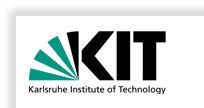| Prerequisites | See module description. |
| Description | This course gives an introduction to consumer behavior and the influence of cognitive and emotional information processing on consumer decision making. The contribution of advertising response models is considered and faced with social and environmental aspects (e.g. cross-cultural influences) on consumer behavior, mass communication and internet advertising. In addition, a scientific case study on the effectiveness of TV-commercials is discussed. Central issues of the course: Case Studies in brand management and advertising response. Psychological factors (research design and test marketing / arousal / effectiveness of TV-commercials as case studies). Emotions in marketing. Information processing and retention in memory (schema theory / visual information processing). Complex advertising response models (attitude towads the ad / attitude towards the brand / persuasion / context effects in learning / decision making / Means-end-theory and strategic advertising). Social processes (culture /subculture / cross cultural influence / product design). |
| Bibliography | (Literature is in English and German, see German description) |
| Content of teaching | This course gives an introduction to consumer behavior and the influence of cognitive and emotional information processing on consumer decision making. The contribution of advertising response models is considered and faced with social and environmental aspects (e.g. cross-cultural influences) on consumer behavior, mass communication and internet advertising. In addition, a scientific case study on the effectiveness of TV-commercials is discussed. Central issues of the course: Case Studies in brand management and advertising response. Psychological factors (research design and test marketing / arousal / effectiveness of TV-commercials as case studies). Emotions in marketing. Information processing and retention in memory (schema theory / visual information processing/grounded theory). Complex advertising response models (attitude towads the ad / attitude towards the brand / persuasion / context effects in learning / decision making / Means-end-theory and strategic advertising). Social processes (culture / subculture / cross cultural influence / product design). Neuromarketing. |
| Entryrequirements | None. |
| Annotation | Please note that this lecture is offered for the last time in winter term 2016/17. |
| Workload | The total workload for this course is approximately 140.0 hours. For further information see German version. |
| Aim | Students have learned the following outcomes and competences:
|
| Exam description | The assessment consists of a written exam (60 minutes) (following §4(2), 1 of the examination regulation). The exam is offered in winter term 2016/17 for the last time. Exclusively for students who took the exam for the first time in winter term 2016/17 and need to retake the exam, a re-examination will be offered in summer term 2017 if required. Winter term 2016/17 is the last re-examination possibility for all students who took the exam for the first time in a previous semester. |
Behavioral Approaches in Marketing
| type: | Vorlesung (V) | links: | weitere Informationen |
|---|---|---|---|
| semester: | WS 16/17 | ||
| time: | 2016-10-17 11:30 - 13:00 wöchentlich 20.30 SR 2.59 20.30 Kollegiengebäude Mathematik, Englerstr. 2 2016-10-24 11:30 - 13:00 wöchentlich 20.30 SR 2.59 20.30 Kollegiengebäude Mathematik, Englerstr. 2 2016-10-31 11:30 - 13:00 wöchentlich 20.30 SR 2.59 20.30 Kollegiengebäude Mathematik, Englerstr. 2 2016-11-07 11:30 - 13:00 wöchentlich 20.30 SR 2.59 20.30 Kollegiengebäude Mathematik, Englerstr. 2 2016-11-14 11:30 - 13:00 wöchentlich 20.30 SR 2.59 20.30 Kollegiengebäude Mathematik, Englerstr. 2 2016-11-21 11:30 - 13:00 wöchentlich 20.30 SR 2.59 20.30 Kollegiengebäude Mathematik, Englerstr. 2 2016-11-28 11:30 - 13:00 wöchentlich 20.30 SR 2.59 20.30 Kollegiengebäude Mathematik, Englerstr. 2 2016-12-05 11:30 - 13:00 wöchentlich 20.30 SR 2.59 20.30 Kollegiengebäude Mathematik, Englerstr. 2 2016-12-12 11:30 - 13:00 wöchentlich 20.30 SR 2.59 20.30 Kollegiengebäude Mathematik, Englerstr. 2 2016-12-19 11:30 - 13:00 wöchentlich 20.30 SR 2.59 20.30 Kollegiengebäude Mathematik, Englerstr. 2 2017-01-09 11:30 - 13:00 wöchentlich 20.30 SR 2.59 20.30 Kollegiengebäude Mathematik, Englerstr. 2 2017-01-16 11:30 - 13:00 wöchentlich 20.30 SR 2.59 20.30 Kollegiengebäude Mathematik, Englerstr. 2 2017-01-23 11:30 - 13:00 wöchentlich 20.30 SR 2.59 20.30 Kollegiengebäude Mathematik, Englerstr. 2 2017-01-30 11:30 - 13:00 wöchentlich 20.30 SR 2.59 20.30 Kollegiengebäude Mathematik, Englerstr. 2 2017-02-06 11:30 - 13:00 wöchentlich 20.30 SR 2.59 20.30 Kollegiengebäude Mathematik, Englerstr. 2 |
||
| lecturer: | Prof.Dr. Bruno Neibecker | ||
| sws: | 2 | ||
| lv-no.: | <a target="lvn" href="https://campus.studium.kit.edu/events/q0aFbO9x6UWFvxMWbE8JbA">2572167</a> | ||


